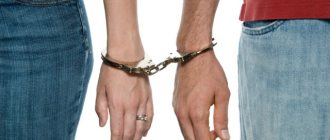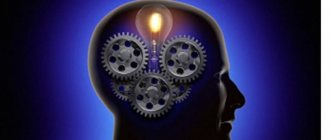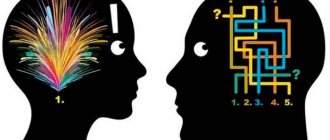It's a rare person who doesn't have addictions in their life. Unfortunately, we can be at the mercy of many habits and circumstances: smoking, alcohol, drugs, the Internet (social networks), television, gambling, sex, etc. Is it possible to reduce their harmful impact on your life or completely overcome them? Let's look at ways to get rid of addiction.
Let's first define for ourselves what addiction is and why it arises. Addiction is an obsessive condition that is difficult to control. This is where all our thoughts and emotions are directed, and this interferes with interaction with society and can generally threaten life.
Painful addictions develop for many reasons. For example, addiction may arise from social, emotional, or environmental pressures. Changes in the environment, problems in the family, a change in the group of friends or place of work threaten the usual comfort, safety and way of life. When under threat, we succumb to negative emotions that prevent us from adequately coping with the situation. Moreover, lack of confidence in our strengths and capabilities, low self-esteem, and a strong desire to get rid of anxiety and stress push us into habits that we use to hide behind, close ourselves off from reality, and try to overcome the uncertainty of life. Addiction provides an illusory sense of control and a kind of salvation, but in reality it distracts attention from the real problems.
And also their addiction arises from the desire to fit into this or that company, to be needed, fashionable and to feel important. The desire to attract the attention of a certain group of people sometimes has a very detrimental effect on the internal state of the person striving for this.
How to cope with various types of addictions, where to start?
You need to start with your head
Everything is within us. As one Nepali thinker and writer said: “We are addicted to our thoughts. We can’t change anything unless we change our thinking.” That is why, try to find the roots of your addiction before getting rid of it: what forces you to do things that interfere with your normal life again and again. And admit that you have it. Without recognition, the struggle will not begin. Ask yourself a question: what is my addiction, what is stopping me from living? Can I control this condition? How can I influence this addiction?
Awareness and recognition of dependence is the first and necessary step that stimulates the process of change. But to start this process, you must actually want to live differently. You need to be prepared for difficulties, disruptions and worries. Ask yourself: why should I change anything? Why does this need to be done now and not later?
If you don't have enough compelling reasons to start making changes today, you may not have the persistence and motivation to achieve the results you want. Therefore, it is very important to answer these questions and find real reasons for change.
How to overcome addiction yourself: the first and most important step
Step No. 1: RECOGNITION OF THE PROBLEM
If a person is interested in a topic such as independent recovery from addictions, then she is on the right track. Accepting a problem and realizing it means that a person is able to go beyond its limits and look at himself from the outside, objectively assessing the situation. As long as a person does not want to realize the problem, he remains inside the problem, which means he is part of it.
What to do:
Mentally separate the problem and put it in front of yourself. Say out loud, “Obviously I have a drinking problem,” or “I recognize that drugs are controlling my life for me.”
Possible mistakes:
At the stage of recognizing the problem, sometimes depressing thoughts like “What an insignificant/loser/weak I am” appear. In fact, recognizing the problem requires strength and courage, and if you have the courage to look at the problem at the gala, you are no longer a loser, but on the contrary.
Take responsibility
You shouldn’t blame anyone or anything for your addictions, shift responsibilities, or justify your actions.
Instead, analyze what led you to your addictions and try to accept your own responsibility for every decision and action that led to this state. After all, no matter what happens, no matter who provokes us to certain actions, the last word is always ours, we choose our path. There is no way to change what happened in the past; you can only work through the consequences and move on, building new opportunities.
It is very important not only not to blame people and circumstances for what was done, but also to blame ourselves. If you have recognized and accepted the addiction, forgive yourself and move on to new challenges. And also think about how your addiction has affected your relationships with other people, and whether what happened interferes with your interaction with those you love and value. Reach out to these people and explain that you are at a new stage in your life, regret what happened, and need support in the future.
Take a look at yourself and do some self-analysis
Ask questions:
- Why did I do this?
- What are the patterns in actions?
- What (who) usually provokes addiction?
- How can you avoid these temptations?
- What do you think during and after playing/taking alcohol/drugs/being on social media, etc.?
- Do you believe in deliverance?
- What fears arise before the “new” life?
- What is their reason?
- How can you get rid of addiction and spend your free time usefully?
By answering these questions, you analyze yourself, your feelings and actions. Denote the cause-and-effect relationship of the dependence. Moreover, the answers will help you understand why you value your addictions so much and why they are so difficult to get rid of.
How to deal with addiction
Dependence (addiction, English addiction - inclination, habit) is an obsessive need to perform certain actions, despite the adverse consequences of a medical, psychological or social nature.
It seems to me that most people have this need to one degree or another. Does this mean that many of us are addicted? We are accustomed to addiction as something terrible, and we easily label it when we see the symptoms. And there are more and more of them as social relations develop, and the list of ICDs expands, now there is love, gadgets are next, what’s next?
She appears unnoticed. Once you let go of self-control, it will take over, subjugate, parabot. Gradually, the pleasure from repeated actions becomes shorter and weaker, and the price that has to be paid becomes greater. Finally, she completely absorbs, sucks out all the juices and kills or leaves him crippled, dragging out a miserable existence. Addiction. She has many faces. These are drugs, and then she is strong, merciless and fast. There's everything there for real: great fun, quick addiction, high price and short life. Alcohol, tobacco, and other psychoactive substances that are integrated into the body’s metabolism, gradually becoming necessary for it, do not act so quickly, but the end is the same. Dependence on another person. It is also called love, food, sex, social networks - everything that we are addicted to without measure makes us addicted. Let us remember the thought of Paracelsus: everything is poison and everything is medicine, the only difference is the dose. How to determine the line beyond which passion begins to control a person, how to understand addiction?
When it's bad, there's an emptiness inside. This is how habitually suppressed feelings are perceived subjectively. She sucks in like a black hole. A person runs away from bad to good. From anxious, controlling parents to a computer game that allows you to become strong and successful, from fear of inadequacy to alcohol, from frightening reality to a nirvana of narcotic bliss, from a lack of security and affection to merging with another. I want to run away somewhere where there is at least something: an attentive person, the pleasure of a game, a glass of vodka that will relieve anxiety, the buzz that a dose promises. Childhood traumas, difficulties at work, in the family, lack of self-realization, everyone has their own cause of anxiety and the fear and pain behind it. You can escape to a place where you don’t have to stress, where you can be yourself, where you can give free rein to your emotions, and where no one bothers you - into a cave of pleasure. The desire for pleasure is inherent in all mammals. It is pleasant in itself, even without additional negative motivation. When there are problems on the one hand, and an opportunity to relax on the other, the motive of escape is especially strong. This is mental protection. I drank, and the anxiety subsided, someone is nearby - the fear goes away. Nature does not tolerate emptiness, and the soul does not tolerate it either.
Any addict knows that this is bad. Everyone who smokes for a long time dreams of quitting, a drug addict realizes that he is killing himself, the wife of an alcoholic is unhappy. It would seem that it could be simpler: quit, leave, don’t use. But the powerful force of attraction is like a magnet, there is no strength to resist.
Actions of addiction become unconscious and compulsive. This means that it is almost impossible to resist. The stimulus turns on the mechanism. A lighter in your pocket makes you want to smoke, a tablet attracts you to play, a tea mug leads you to the refrigerator with a cake in it. Smoking is harmful, but it is slow and long, and the anticipation of the smoking process is here and now. The distant prospect cannot compete with what nearby offers pleasure. At this moment it’s good, but what will happen next... What is repeated many times is no longer controlled by consciousness. The brain has developed stable pathways for excitation of synaptic chains in response to familiar stimuli. They control behavior. A proven path of pleasure, like a signal button, turns on the mechanism of habitual action.
Are you aware of the new life starting Monday? And often it really starts on Monday... until Tuesday or even Thursday. At first there is more than enough determination, but for some reason over time it melts like spring snow. And this is natural. The point is simple: with every effort to combat a bad habit, energy becomes less. Freud called this ego depletion. The more you run, the less strength you have left. The chance of reaching liberation is slim. This is why it is so difficult to break an addiction or habit.
It is difficult, but it is possible, it has been proven many times. But the methods are often not the same. It seems that you need to gather your will into a fist, and everything will work out. To help, you need to separate the addict from the object of passion: you can put a lock on the refrigerator at night, the drug addict is isolated, the alcoholic is stitched up, they run away from love addiction to another locality. This helps for a while, but the craving remains. At its core is desire. All obstacles along the way make the process difficult, but as long as there is a desire, there will be a desire to satisfy it. The desire for pleasure, strengthened by the positive emotion already experienced there, includes a reactive drive of action to obtain the object of dependence. Until the moment when the anticipation of pleasure from the object of dependence is stronger than the delayed benefit from freedom, the struggle is useless. This is self-deception. Internal conflict persists and a breakdown is very likely.
The desire to become free must be stronger. This happens when drinking more is no longer healthy, when drugs have almost destroyed your personal and social life, when bruises from beatings or psychological violence can no longer be tolerated. The pleasure from the subject of addiction decreases over time, and more and more resources are needed. There comes a moment when the realization comes that this cannot continue. This is a personal bottom, of course, for everyone. You don’t have to go down on it, you can look at other people’s experience, but the main thing is to understand. It is awareness that switches priorities and motivation. Now we need to act.
To begin with, you must admit the existence of addiction and your inability to defeat it on its field. This means that an alcoholic should not drink at all, not at all. You need to quit smoking immediately, without reducing the number of cigarettes. There are medications for physical restructuring of metabolism. You need to break up with your tyrant husband decisively and irrevocably, and not hope that he can be changed. Once the mechanism of action of addiction starts, it is impossible to resist. This doesn't mean you are bad or weak. It's just the way we're built. When stimuli trigger the desire of the addicted object, it sweeps away all the defenses in its path, built by the thinking of the mind. An alcoholic will find alcohol at any time of the day or night and after the first glass he is not able to stop. A person suffering from love addiction will endure anything as long as his sweetheart is nearby. I'm not even talking about the drug addict. When you try to reduce your addiction by the amount you drink, eat, take, etc., you play by its rules. You are almost guaranteed to lose in this game. This is the first thing to learn.
Second. Before the master gets a stool, he creates it in his head. Imagine an image of yourself free, preferably in every detail. How will you live, what to do. There must be a visible reference point that will support the desire.
Third. What you were running from has not gone away. It's waiting for you around the corner. You'll be confronted with the anxiety and fear that fueled your addiction head-on as soon as you take a breath, and you'll have to do something about it or else you'll end up in trouble again. Everything has its cause, you need to understand what you were running from and learn to live with it or eliminate it. The good news is that the efforts to understand and cope that you have already made have strengthened your self-esteem and added resources. You can consider addiction as a testing ground, as a step in development, no matter how strange it sounds. Everything has its positive and negative sign. “There would be no happiness, but misfortune would help.”
Fourth. It is necessary to look at your life as if from the outside, dissociated. The first is to see the time perspective. You won't be in this state forever. This is one of the stages in life. Once you find yourself in addiction, you fall out of time. Its cycle repeats over a short period of time. Only looking at yourself from the outside equalizes the anticipation of pleasure from the object of addiction and the delayed pleasure of freedom. You can only compare them from above. Secondly, from above literally, mentally, of course. Look at your own torment as if from space. A little strange and ridiculous, isn't it? Dissociation still works with priority modalities, but these are tools for a psychologist.
Fifth. Addiction narrows consciousness. All thoughts revolve around one thing, making it impossible to see anything other than the desired object. You cannot avoid searching for new personal meanings. I repeat, the soul does not tolerate emptiness. But once you deal with the anxiety and fear that triggered the addictive behavior, you will see them. Anxiety, like a dam, blocks the energy of activity.
Let me give you an example from my own life. Twenty years ago I quit smoking. I did not have an additional incentive in the form of a doctor’s ban or other strong need. And after a couple of unsuccessful attempts, I started by finding the reasons why I started smoking. I remembered what it gives me, how it was before smoking, how it will be in the future (time perspective). Dependence reduces the degree of freedom, you pay for it with dubious pleasure, isn’t the price too high? I suddenly saw from the outside a demonstration of the obvious weakness of the smoker (spatial perspective). I looked at the process and myself in it from the outside in time and space and realized that I didn’t need it. At that moment, my desire to live without addiction became stronger than the desire to smoke. All that remained was to cope with the withdrawal syndrome. It's not difficult when you have the motive and desire. My Monday started on New Year's Day. I haven't smoked a single cigarette since then.
Dependence subjugates and prevents you from living fully. There are many actions that we do automatically, without thinking. They become habits. Remember the proverb: “Habit is second nature.” They are also difficult to change, they also control behavior, but this is not so critical for personal and social life. The mechanism of their formation is the same as that of addiction - repeated repetition, which develops into a pattern of behavior. That's how training works! Everything is poison and everything is medicine, the difference is in the dose. The psyche doesn’t care what reality it deals with, the laws are the same. You can’t cure habits with medications; in case of addiction, they are designed to help with physical restructuring, alleviate withdrawal symptoms, relieve tension and nothing more.
There are many people who want to sit with a cup of good coffee in a cozy place. It's fun. I've done this myself more than once. What is it, a habit or an addiction? In a certain sense, it is an addiction. True, the bad consequences are not obvious. This doesn’t bother me, but my habit was formed in the same way as a drug addict’s addiction to drugs, through repeated repetition. The only difference is that I have my own habit, i.e. desire, I can control, but drug addiction subjugates the life of the addict. I can control the acute reward, but the addict cannot. Remember, everything is poison and everything is medicine, it’s just a matter of dose. There are a great many habits that smoothly turn into addiction. We begin to change them only when there is a desire for something good, which she interferes with.
The mechanism for overcoming addiction is applicable to behavior change in general. The brain changes under its influence, but it also changes as a result of learning and experience. This happens throughout life and is called neuroplasticity. Addiction is not a death sentence. It can be dealt with.
Future Plan
After the self-assessment stage, you can sketch out a plan for your new life that will replace addiction. This does not mean that you need to come up with a new addiction of this kind, no. Addiction is a habit that has developed over time and is deeply rooted in the psyche. And to eliminate it, you need to find a healthy replacement that will satisfy the same needs.
For example, people smoke for many reasons. Some to relieve stress, others for social reasons, others simply because the habit makes you feel comfortable and safe. And in order to eliminate this dependence, each person must realize what needs he satisfies. And also replace them with a new habit that meets the same needs. Some people try to escape from cigarettes with candy, chewing gum, or breathing exercises. Everyone has their own methods, depending on the reasons. To help you understand, try answering the following questions: How can I get what I need without smoking cigarettes? What can help me meet my basic needs?
Essentially, you need to make sure that indulging your addiction is no longer worth your time and effort, and that it's time to get rid of it. Your new healthy habit/hobby has much more value.
What is addiction?
Dependence - in psychology, addiction is a felt obsessive need for a certain action. Without receiving or performing these actions, a person experiences noticeable, often painful psychological discomfort. Addiction sits firmly in the human psyche, so it begins to control him, and the person begins to direct all his actions to satisfy an obsessive desire. This often happens unconsciously because one of the pitfalls of addiction is denial. An individual does not struggle with addiction because he is not aware of it; in his perception of the world, everything is correct and as it should be. We'll talk more about dependency traps below.
One of the main indicators of severe addiction and a wake-up call for loved ones of the addict is the formation of new social connections with people with the same addictive behavior to the detriment of old connections and social life.
In this article we will consider the psychological factors of addiction and types of combating them, but it is important to note that chemical addiction causes psychological addiction, since this is the only way a person can receive brain signals that it is important to act to satisfy an obsessive desire.
Signs of addiction
The essence of addiction is that it does not provide benefits to a person's health and mental well-being. As an excuse, the addict can use the argument that his condition is beneficial. In fact, this has nothing to do with reality.
How does an addicted person behave?
- loses social connections, surrounds himself with dependent people;
- neglects things that previously aroused interest;
- gradually and noticeably narrows the range of activities and interests;
- suffers failures in various areas of life due to manifestations of his addiction;
- denies having an addiction;
- strong aggression and unbearable behavior manifests itself if the subject cannot satisfy the obsessive desire;
- may become depressed due to the inaccessibility of the object of addiction.
Active actions
Your goal is to gradually adopt a new lifestyle until it becomes habitual. It won't be easy, of course. You may find yourself returning to past addictions and experiencing small failures. There's nothing wrong with that, it's normal. Admit you made a mistake and move on. The main thing is to maintain the desire and confidence in better changes.
When you achieve some victory over your addictions, reward yourself with something special. For example, take an unplanned day off or go for a walk in a pleasant company that will not remind you of your past life and lead to addiction.
And don't expect that you can get rid of addiction in a day, a week or even a month. This is a long-term process that takes time. That is why, do not lose vigilance and perseverance, and you will definitely achieve the point where addiction will no longer have power over you.
Examples of actions you can take to overcome addiction:
Prevention
When the situation begins to improve and a person understands that he has gotten rid of subordination and can independently control himself, one should not succumb to a false opinion. A person can independently sabotage himself, assuring that the difficulties have passed and a “new life” has begun without addictions. In such situations, you may get the impression that you can give in to a bad habit a little and nothing bad will happen. However, the situation suggests that the patient is at a stage when a strong craving occurs, allowing the results to be destroyed.
The more information you have about your addiction, the better you will be able to control your behavior.
Information can be taken from anywhere: books, articles, studies, videos, movies, meetings, support groups, lectures, etc. Moreover, you are not the only person who has encountered a similar problem. Therefore, the experience of other people and support (both friends on the problem and specialists) help very well in such situations.
Meet people who are working with addiction or have successfully overcome it. You will definitely get help and make friends.
Nature of addiction
Addiction can develop for a number of reasons. If you feel that you cannot understand yourself on your own, or the disease reaches a critical state when you are causing significant damage to your health, it is better to contact a psychologist who will help identify the causes of addictive behavior and make corrections.
The main motivations for addiction are highlighted by American psychologist and psychiatrist Gillian Riley:
- Reflex or unconscious signal. Occurs when a person associates an addictive action with something else. For example, smoking when going outside or after eating.
- At a loss. Psychological problems, including problems with self-esteem, lead people to act in ways that are harmful to themselves. Dependence here is a way of not accepting oneself. In this case, deep and systematic work with the root causes is important.
- Pleasure. Our brain becomes hooked on the stimulation of positive emotions. Especially when there is a hunger for them. In order to initially prevent this, it is important to learn to enjoy simple everyday things, relax and not deprive yourself of desires, then there will be no need to compensate.
- Altered state. This is a “buzz”, “excitement”, “satisfaction” or just a good mood. The mechanism of action is similar to the previous one, but it is important to note that the basis of addiction is discomfort, which prompts a person to act. By satisfying an obsessive desire, a person gets rid of the feeling of discomfort and feels relief, which develops into euphoria. A simple example: a smoker’s irritation, a feeling of danger when the cigarettes run out - a puff - a feeling of security, pleasure. In this case, the pleasure is not caused by the nicotine itself (it has not yet had time to act and its effect is not so strong), but by the realization that the obsessive desire is satisfied.
- Development of a culture of dependence. As we said earlier, people with addiction break off social ties and strive to surround themselves with similarly addicted people. The culture of dependency is a very powerful trap. That is, a person likes everything related to his illness. For example, let’s continue the topic of smoking: these are expensive cigarettes, beautiful lighters, photos with cigarette smoke, etc. In the Internet era, it is very easy to find like-minded people in any destructive activity, which makes the situation worse.
- Social pressure. A serious problem of our time. Marketing puts pressure on a person, causing a feeling of inferiority, putting pressure on the idea “everyone does it.” That is, “everyone buys expensive things,” “everyone smokes, smoking is cool,” “everyone is fixated on weight and losing weight.” The availability and unauthorized nature of advertising can lead even a healthy person into the trap of addiction. Therefore, it is important to recognize the presence of such pressure and filter out such materials whenever possible.
Non-obvious dependence is the most difficult case. There are people who depend on compulsive actions that look useful from the outside. For example, a pathological obsession with healthy eating is also a psychological problem. Many are slaves of likes and positive comments, slaves of work, slaves of codependent relationships that from the outside look like love to the grave, but are destructive from the inside... and the options don’t end there.
Addiction is a disease. Therefore, it is very important not to think of dependent people, including yourself, as weak-willed or immoral. Having an addiction, a person would be glad to get rid of it, since it causes him great harm, pain and suffering, but he cannot get rid of it. Unfortunately, this does not work with the snap of a finger or after a strong promise to yourself. The best thing you can do is promise yourself to start working in this direction and get ready for long, systematic work.
Help another person with this problem.
One of the good indirect ways to get rid of addiction. When you help someone, you take a different approach and no longer think like a victim, but look for solutions.
By helping other people, you gain new knowledge and experience in what it takes to overcome addictions. As a result, you are doing effective work with your addiction.
Future changes
In addition to the list with a negative effect, you need to make another one, in which it is important to describe in detail the future positive changes that await you in the future. Think about what you would like to achieve, what to change. Create a picture of the future, gradually visualize it and bring it to life.
- Feeling of freedom. People who have recovered from addiction note that life takes on new colors, because you are no longer at the mercy of your habit and can make your own decisions.
- Free time. A healthy life will provide you with time that you can devote to hobbies, family, and friends.
- Financial independence. Imagine that all the money that went into maintaining your addiction will be at your disposal again. You will be able to save them to make your dreams come true.
- Healthy lifestyle. Regular exercise, proper nutrition, and the absence of bad habits will guarantee an improvement in overall health and will also increase self-esteem. Over time, you will gain pride in your decisions and your new life.











